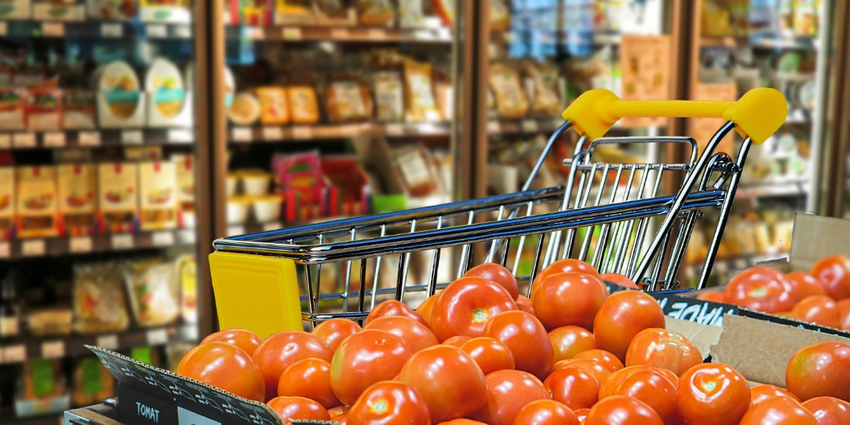Kathryn Judge advocates a shift towards a more direct economy, that is a cycle of production and consumption without intermediaries. From her point of view, this shift is needed to reconnect producers and customers, so that the information asymmetry caused by middlemen is minimized. The Columbia Law School Professor and author of the book “Direct: The Rise of the Middleman Economy and the Power of going to the Source” presented these thoughts in a LawLab Lunch organized by the Policy Center of the Leibniz Institute for Financial Research SAFE on 11 November 2022. Judge’s presentation was followed by a discussion of legal scholars Hans Christoph Grigoleit (University of Munich) and Marc-Philippe Weller (University of Heidelberg), as well as SAFE Fellow Bernd Skiera (Goethe University Frankfurt), who commented from an economic perspective.
Judge began with an example from the financial industry. There are two intertwined phenomena that have been on the rise since the 1980s and contributed to the rise of the middleman economy: While the number of banks in the United States has decreased, the share of assets held by the largest banks has increased, out of which the three largest banks hold 40 percent. Judge explained that at the time, the specialization of banks seemed profitable and seemed to generate efficiency gains. According to her, this example can be transformed into other areas. Large intermediaries, such as Walmart or Amazon, gradually become so powerful that they can impact the regulatory setup and contribute to the shift towards hyper-specialization in the increased complexity of a globalized system.
The complexity of supply chains increases information asymmetry
Another aspect that Judge drew attention to is how supply chains have been greatly affected by the COVID-19 pandemic, as increased European and American demands could not be satisfied due to stricter Chinese regulations. She pointed out that the longer the chain, the more information gaps will be created. Thus, during the pandemic policymakers were unable to catch up with the pace as they were unaware of certain aspects. Nowadays, complex supply chains also become an issue for ESG criteria.
Although customers may put great emphasis on these criteria, they may not get all the information they need to decide on a producer’s ESG impact. Judge argues: “For a possible solution to the problem, we need to rethink the middlemen and the direct economy. In the book, I put emphasis on five core principles to stimulate the discussion, namely: First, intermediation matters; second, shorter is better, third, direct is best; fourth, follow the fees; and fifth, bridges can help.”
Following Judge’s presentation, Hans Christoph Grigoleit asked what the specific harm of the middleman economy is to society. From his point of view, there needs to be more consideration of the threats that the direct economy poses and that the term “middleman economy” needs a clearer definition, as it does not become clear to the reader what Judge refers to, such as a proxy for size, globalization, digitization, or unhealthy products. Grigoleit broadly identified the need for discussion on the issue of power abuse and related aspects, such as the creaming of excessive profits, the seduction of customers, and the abuse of data and algorithmic power. He stated that he is “not convinced by Judge’s focus on social welfare, equality, and reasonable lifestyle”, as he speaks from a German perspective.
A cut of middlemen is not the ultimate solution
Marc-Philippe Weller commented that Judge’s clarity of her five main theses is an appropriate way for the reader to engage with the book. However, he presented some antitheses to clarify central issues. According to his antitheses, it is difficult to find causality in the middleman economy for the E-Coli outbreak in Germany in 2011, an example that Judge uses to illustrate the complexity of supply chains. Since Germany’s hygiene standards are comparatively high and fruit and vegetables are checked multiple times at each layer of the supply chain, this does not seem like a suitable example to him. As Weller explained, the idea to have an economy without middlemen “works in industries such as blockchain technology or certain platforms that act to bring customer and service providers or producers together directly but there is the disadvantage that intermediaries can fulfill important functions that are not easily replaceable once middlemen are cut off.” He thus proposes to set the focus on the bridge to climate neutrality, as a shortening of the supply chains will immensely decrease scope three emissions, which are the result of activities from assets not owned or controlled by the reporting organization, but that the organization indirectly impacts in its value chain.
Following up, Bernd Skiera argued from an economic perspective that middlemen should be promoted, for instance, platforms like Booking.com or Airbnb. He added and related to Weller that “it would be easy to cut off the middlemen, but usually, they also had a function, and when cutting the middlemen, either the buyer or the seller has to take over that function, which makes it more costly and will result in higher costs for the buyer.” In conclusion, Skiera mentioned that as a private person, he has high sympathy for the cut, but as an economist, he also sees the benefits they hold. Kathryn Judge summarized that not all economies should be direct, but the direct economy should be seen more as a cornerstone. According to her, the middleman economy can also support a green transition through platforms where goods can be sold, such as eBay.

